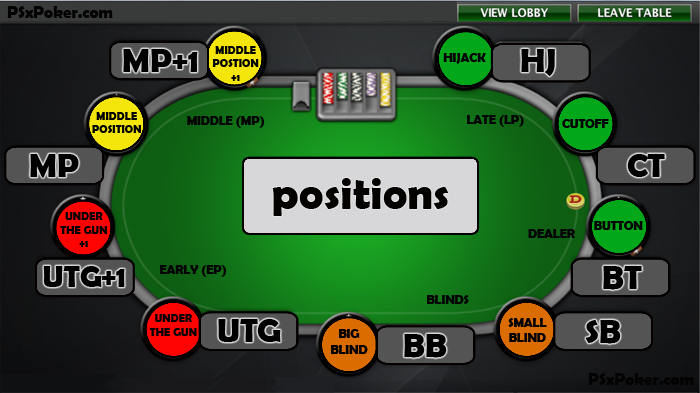The impact of betting position on Poker strategy is a fundamental aspect of the game that can greatly influence a player’s decision-making process and overall success at the table. When a player approaches the table position, they have access to all of the cards in the deck and know exactly what their opponents have.
However, when a player sits at the very end of a long list of dead cards, they are not able to make educated guesses about whether their opponents hold cards simply because they cannot see them. In this article, we will explore how a player’s position at the poker table affects their strategy and why it is crucial to consider when making decisions in the game.
Understanding Poker Positions
In poker, there are various positions at the table, and each one offers a different perspective and set of advantages or disadvantages. The primary positions to be aware of are:
Early Position (EP): This is the only position that is dealt in the first three rounds, and it gives a player the possibility to see a large number of cards before it is their turn to act. They are typically seated in the outer positions alongside a few other players.
Middle Position (MP): This is also one of the more common positions at the table. Usually, there will be anywhere from four to nine players seated between two to four seats after early position. The middle position often gives players an opportunity to steal pots immediately before or after they act because they can see both cards before and after them in the dealing order.
Late Position (LP): This is the position that results from players being dealt in the last three rounds. Players usually start with more chips and are able to steal pots more easily as a result.
Any Other Position (AP): This is any position that is after LP and before AP, with no player seated anywhere between the first two positions. This allows players to see all of the cards in their hands before they act but does not give them as much information about what their opponents have.
The Impact on Post-flop Strategy:
When a player sits in the last position, they are not able to make educated guesses about what their opponents hold. This is because, in the last position, a player does not know whether opponents hold just one or two cards. However, when a player sits in an early position or middle position, they have access to more information compared to an opponent in a later position.
For instance, when a player is in the middle of the order, they can see both cards after them and cards before them on the deal. This means that they can make an educated guess about whether or not their opponents have raised or defended themselves based on how many cards they think their opponents are holding.
Since there will always be fewer cards in the deck, it is more probable that players in LP will hold a strong hand and are likely to raise or defend. Thus, it makes sense for players to play towards this possible strength rather than folding if it looks like a hand is going to happen post-flop.
The Impact on Bluffing and Aggression:
Another major aspect of Poker rules strategy that is affected by a player’s position at the table is their ability to bluff and act aggressively. Since players in later positions always have less information than those in earlier positions, they can only bluff or attack with their main hands. In contrast, players in earlier positions have more information because they are able to see what cards are in the deck and the possible combinations that could occur as a result. This allows them to attack more aggressively pre-flop if it is favorable for them. They also have the option of waiting for a good opportunity to bluff post-flop while their opponents do not know exactly how strong they are on average.
Conclusion:
Overall, players must take all of their available information into account before making any decisions at the table. When a player has less information, they are restricted in their options and are more likely to make mistakes. Therefore, poker players need to remember that the position they enter the game in is an important factor that could change their strategy for the duration of a session.





